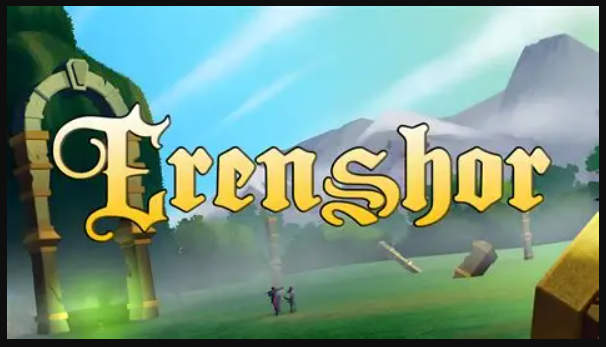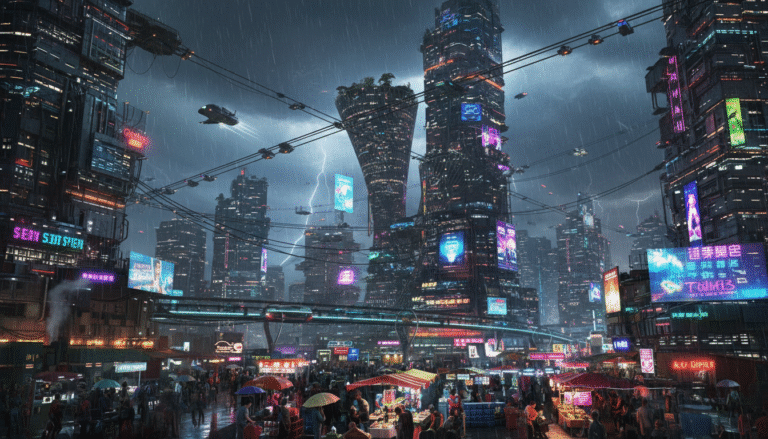Why is so much modern TV and film writing so…bad?
Both general curiosity and my plans to continue my Quantum Leap reviews have driven me to research this in painful detail.
First off, what does “bad” even mean? I think that’s the reason to dig into the subject, because so many people (even industry insiders) are quick to blame a bomb of a movie or TV series on “bad writing” without any supporting details.
That’s really a cop-out answer when you think about it. That’s like asking a racecar driver why he lost a race and getting “I didn’t drive fast enough.” Duh. That could mean anything. Were you having an off day? Were your tire pressures wrong? Was the track texture impeding your cornering? Was your helmet on backwards? Or do you just suck so badly you don’t belong behind the wheel?
“Bad writing” can mean countless different things, too. The story could be boring, the dialogue stilted, or the world too unbelievable. There could be problems with pacing, characters, or the entire premise might be trash. Those examples don’t even include the minor factors — attention to detail, nuance, and so on.
So What’s the Problem?
I’ve pored through dozens of video essays, written analyses, and reviews to find answers. What seems apparent is that there are common threads running through many of the total bombs released in the last couple of years. (I’m talking about books, movies, and TV shows.) Let’s take a look at one of the most prevalent:
Identity as a Core Feature
There’s nothing wrong with telling stories where identity is a major element — ethnicity, sexuality, culture, ideology — these can all be powerful narrative drivers.
The trouble starts when identity stops being a dimension of the character and becomes the entire character. It’s the difference between identity as part of a recipe — flavoring the plot, theme, and relationships — versus identity as the whole dish, served without any other ingredients. Everglades seasoning is awesome…but I’d never want to eat a bowl of it.
Here’s a simple hierarchy we can use to think about story construction:
- Ideas — big, challenging concepts: What is justice? Can technology replace love? Does fate exist? These are the stories that leave you wondering, questioning, discussing. A lot of modern media is forgettable because big VFX budgets might get your attention while you’re watching, but they’re not really worth thinking or talking about later.
- Events — dramatic happenings that test characters and push the plot: wars, mysteries, crises, heists. Events create stakes, forcing characters into choices and change. One difference between genre fiction and literary fiction is generally that the former puts events over ideas (or can exist without any big ideas) while literary puts ideas over events.
- People — who the story is about. Great writing makes us care through personality, quirks, motivations, and flaws. Identity is just one piece of that whole package. Note that there’s another trend hard at work these days: trauma. Everything has become about past trauma because it seems like a shortcut to a character with depth. It also absolves the character of any responsibility, because the trauma was forced upon them. It’s not their fault, so the illusion that the character is secretly perfect can be maintained.
When identity is treated as the only defining trait — “Here’s a person of type X, and the moral is that being X is awesome” — you’ve skipped ideas, hollowed out events, and flattened “people” into a demographic label. It’s weak footing for a story because there’s no room for transformation: if the central truth is “I was great all along…it was everyone else who sucked” there’s nothing to wrestle with, no arc to follow, no tension to resolve.
This is why so much recent “identity-first” media feels inert and soulless. It mistakes validation for storytelling. Conflict shows up only to be swatted aside as quickly as possible, because any internal struggle would risk complicating the narrative of perfect self-acceptance. The result? A sequence of scenes where the world either affirms or attacks the identity, without the character evolving in any meaningful way.
I swear, that’s become “the Hero’s Journey” for most writers these days — and it sucks way more than the original framework because nothing actually happens. All that matters is that it hits someone (usually the person who wrote it) “in the feels.”
Some argue that feelings make for human stories, but how can that be, when what makes us human is our ability to think and reason? Feelings are part of being human, but it’s our nature to act, to understand, and to labor over complex ideas — and that’s really what makes us who we are.
Feelings are part of being human, but it’s our nature to act, to understand, and to labor over complex ideas — and that’s really what makes us who we are.
Identity-driven storytelling can absolutely work — but only when identity is integrated into a living, breathing human being with complex motivations, put into situations that challenge them, force them to make hard choices, and leave them changed.
Diagnosing the Trend: Why Identity-Driven Storytelling Dominates Now
How did we get here — where validation, identity, and feelings seem to outmuscle big ideas and eventful conflict? This isn’t just a fluke — it’s the outcome of systemic forces that have reshaped what writers create and what audiences are invited to consume.
- Content Oversupply and Streaming Economics:
The streaming era’s thirst for endless material has radically lowered the bar for what counts as a greenlight. With platforms racing to fill libraries and keep viewers binging, speed trumps craft. High-concept, idea-driven stories take time — and risk. It’s much faster and cheaper to lean into recognizable identity tropes and emotion-forward storytelling. You get surface-level connection (“I see myself!”), but rarely the deep resonance that lingers after the credits. This type of writing is also the easiest to execute — which means you don’t even need skilled writers to do it. As is evidenced by current entertainment. - Algorithmic Validation and Social Media Culture:
Online discourse rewards clarity, immediacy, and controversy. Identity and emotional statements spread faster and generate more engagement — think hashtags, viral threads, or TikToks. As studios and writers chase viral moments, nuance succumbs to digestible self-affirmation or group alignment. The result is content designed to be signaled and shared, not necessarily meditated upon; the most “important” stories are the ones everyone can post about, not the ones that provoke any actual thought or discussion. - Shifts in Narrative Education and Standards:
Contemporary film schools and MFA programs increasingly teach identity as a central theme — sometimes even above story mechanics or philosophical depth. Many emerging writers are trained to foreground representation and lived experience, under the impression that this creates automatically impactful narratives. Overemphasis on this approach can mean new storytellers are less fluent in constructing layered conflicts, transformative arcs, or weighty conceptual themes.
Together, these forces mean that writers (especially in Hollywood and new media) face constant pressure to produce stories that check recognizable boxes and generate quick emotional hits. The deeper work of synthesizing events and ideas into lasting stories too often gets lost in the pursuit of immediacy, relatability, and communal signaling.
A Case Where It Worked
Not all identity stories are terrible — they just take a good amount of talent to pull off. Just last night I watched The American Society of Magical Negroes and was thoroughly blown away by the story.
As you can imagine, the entire throughline was about Black identity in America. Its basic premise? That there exists a secret society of Black people working hard to keep white people happy, so they (we) don’t go nuts and commit hate crimes pretty much constantly.
Now, this is a premise that I could find offensive — but the film was so well written that I wanted to understand it. It affected me, made me think. I empathized with the main character, and one of his monologues actually gave me a new perspective on social issues.
The story within the story — about the Wall Street bro being mugged — really hit hard. It delivers the kind of “wow, so that’s what it’s like” epiphany that so many writers think they’re conjuring. What’s really amazing about it is that it wasn’t so completely and obviously about race — but rather social standing — that most people could probably relate to it regardless of their race. And I think writers with “a message” forget that if you really want to affect change, you have to relate to the people you’re trying to influence, not insult them.
But it takes a really good writer (or writers) to pull that off. Because bad writers think the way to tell this kind of story is just have the Black characters save the cat and the white characters kick the dog. They think that telling “identity” stories is about creating division and demonizing whatever identity isn’t the one they’re talking about.
But in this case, the writers knew they couldn’t just write about identities. Or even just about feelings. They needed events. They needed ideas. They needed multiple layers of conflict — the MC’s inner conflict, the conflict between him and his white client, the conflict between his employer and his ideals, the conflict between his romantic feelings and his duty.
Explicit Example Alignment: The American Society of Magical Negroes
By mapping Magical Negroes directly to the framework — Ideas, Events, People — you see how the narrative earns its emotional impact rather than relying solely on validation or surface-level identity representation.
|
Through all of those conflicts, the MC was able to grow — and through that growth, the audience is able to experience something. Doing this requires a writer to know that the main character is human, and develop him further than just picking a skin color.
Where’s the Tipping Point?
The rules on structure and depth above apply universally. Whether it’s a book, movie, or show — or if the identity is racial, social, or ideological.
If I think about the last ten terrible movies or shows I’ve watched, they all share this flaw of being entirely about identity without including any story. No ideas or thought-provoking concepts at all. And whatever events are written in are meaningless. They’re just excuses for the identity character(s) to do things so that they’re not standing in front of a camera picking their noses for an hour.
Contrast all the great things about Magical Negroes against another top-of-mind case study: She-Hulk: Attorney at Law. There’s little depth to the ideas of this show, and it pulls no punches in drawing its conflict line between men and women. In the six episodes I studied, female primary characters were depicted as capable and self-actualized. Men were mean, stupid, comically goofy, or evil. She-Hulk’s only conflict was with balancing her Hulk abilities with her normal life (forced trauma again! Not her fault!) because she was always too smart, too strong, and too capable to have any other real challenges.
The shallowness of this setup should be obvious to any skilled writer. One should look at this and shudder at how impossible it would be to write compelling stories around these rules. It’s a perfect example of how there are no real ideas to work with (other than protagonist = better than everyone else) and events are boring and meaningless when the protagonist always wins. In that ecosystem, the characters pretty much become irrelevant — but even more so when they’re paper thin and used only as a props for the MC to make jokes about or roll her eyes at.
Honestly, looking back at the Quantum Leap reviews I’ve already finished, I can really see that same trend at work. Most episodes pull a setting out of a hat, throw in an identity character or characters, have a bunch of pointless stuff happen, and then wrap up by saying “identity character = good, everyone who made them feel bad = evil.”
It’s an ideology, but it’s not a story. It gives nothing to think about or consider — you either agree with it or you don’t. It won’t enlighten anyone or bring them new awareness. It will just bore them…and probably piss them off if they fall into the demographic your story demonizes.
But maybe pissing people off is the point…
Case Study in Signaling Over Story: Wheel of Time (the Show)
Alienating audiences has become a deliberate choice, most likely because it plays into the “signaling and sharing” concept from earlier. Entertainment is no longer about bringing people together, it’s about drawing lines and pushing buttons.
Take for example Rafe Judkins, the showrunner of the Wheel of Time series. He heavily altered one of the most important fantasy stories in the history of the genre. He emasculated the male characters, added relationships that weren’t needed, and made all of the female characters “instantly perfect” with no room to evolve. And when people complained, he Tweeted that he would “turn more of their favorite characters gay.”
We’re handing $80M budgets over to thinking like this and wondering why American entertainment is in decline?*
Closing Thoughts for Writers
Identity can absolutely fuel powerful storytelling — but only if it lives inside a complete human character, moving through meaningful events, in service of resonant ideas.
Treating identity as the destination, rather than part of the journey, hollow-cuts the emotional and thematic payoff your audience is hoping for.
Remember:
- Ideas – There is room for divisive topics in storytelling. Conflict is essential to a story. But “this type of person is good, this other type is not” is not so much a topic as it is a statement. Consider digging into moral ideas — justice, loyalty, authority, and what it means to balance these various scales.
- Events – This also means stakes. You can’t just have a fight scene and call it an event, especially with MCs that have so much plot armor they can’t possibly lose.
- People – Realistic people with depth and their own opinions. This doesn’t mean “stick on some trauma” and call it a day — that’s become a cheap crutch recently because it gives the character something to overcome without any responsibility. Consider ditching the idea that everyone is secretly perfect, they either just don’t know it or other people are holding them back. It’s boring, unrealistic, and overplayed.
So here’s the challenge:
If you can’t write a version of your story where the MC’s identity evolves and the plot still works, you don’t have a story yet — you have a poster.
* I just figured it out. Hollywood is just stealing ideas from pro wrestling. They figured out a way to divide the fans, and now they can just send out heels like Rafe Judkins to do callouts and get people riled up. It’s the BTS and social signaling that audiences actually care about…so they just turned American entertainment into one giant reality show! Argh…another brilliant side effect of social media is revealed.



